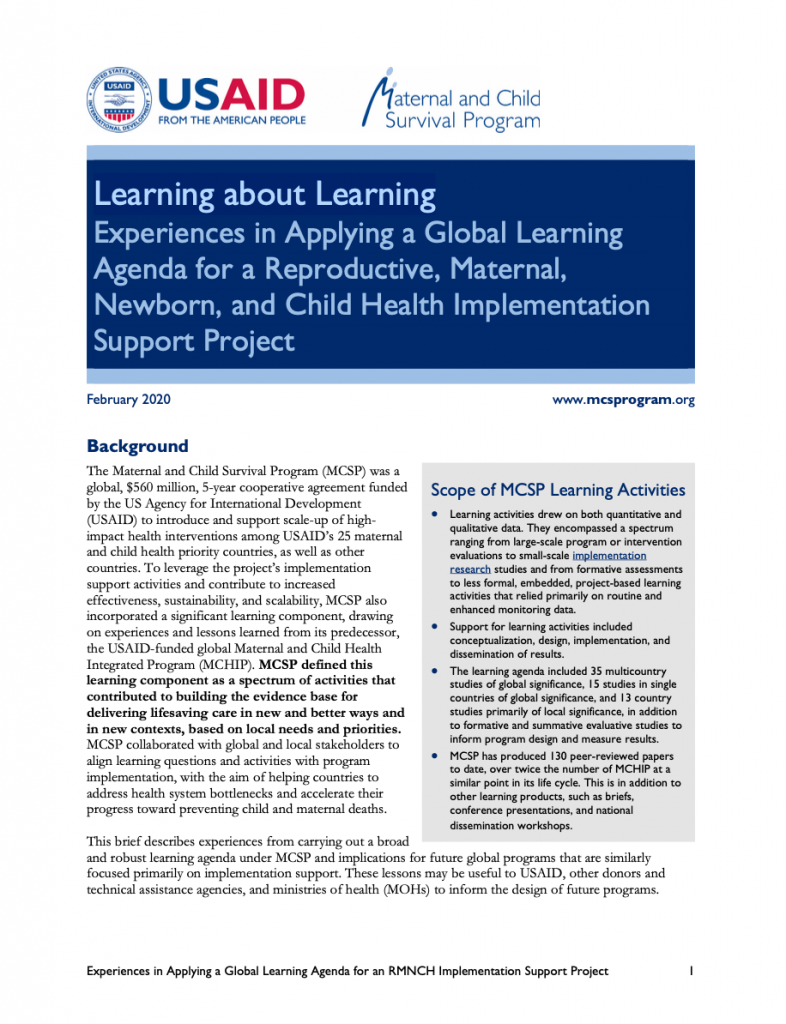
This brief describes experiences from carrying out a broad and robust learning agenda under MCSP and implications for future global programs that are similarly focused primarily on implementation support. These lessons may be useful to USAID, other donors and technical assistance agencies, and ministries of health (MOHs) to inform the design of future programs. […]
Read More…
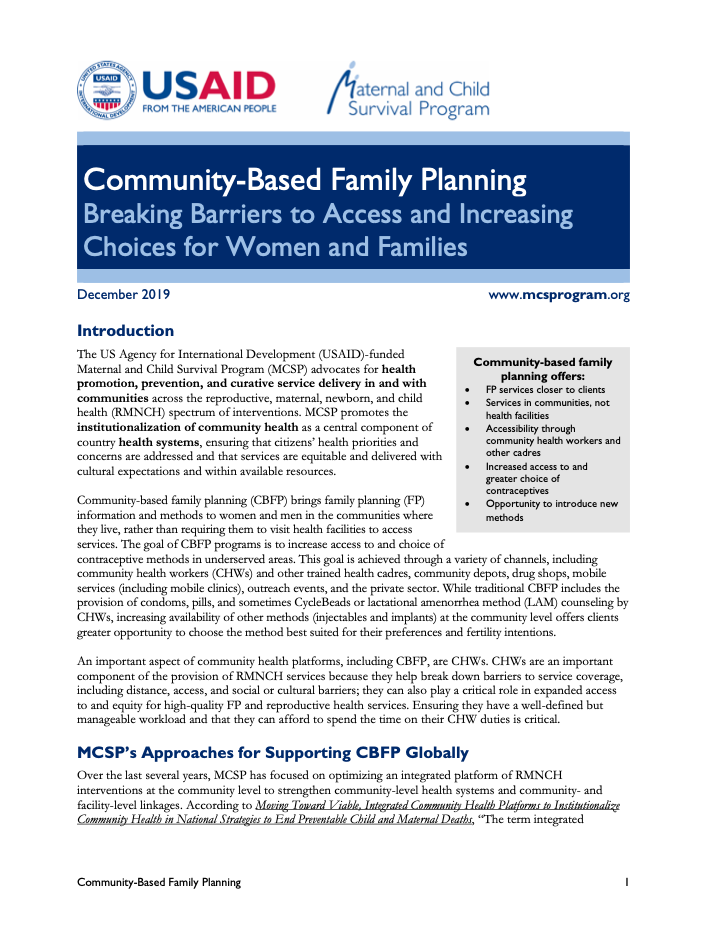
The US Agency for International Development (USAID)-funded Maternal and Child Survival Program (MCSP) advocates for health promotion, prevention, and curative service delivery in and with communities across the reproductive, maternal, newborn, and child health (RMNCH) spectrum of interventions. MCSP promotes the institutionalization of community health as a central component of country health systems, ensuring that […]
Read More…
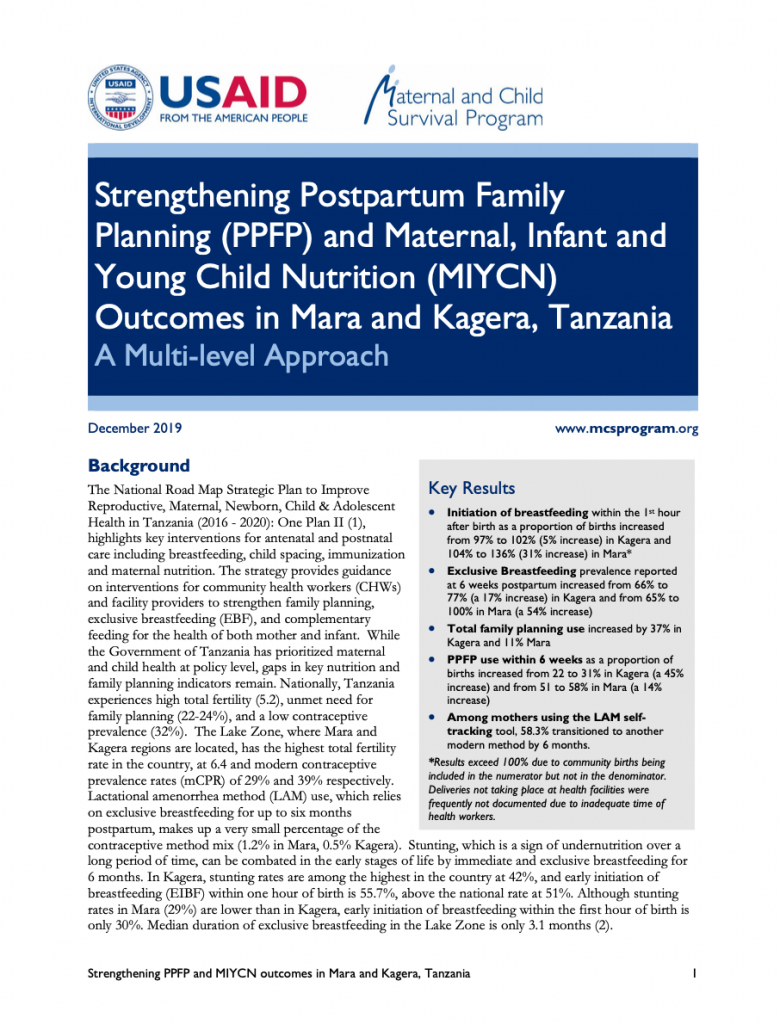
In Pakistan, the Maternal and Child Survival Program (MCSP), funded by the US Agency for International Development (USAID), worked in Sindh, Baluchistan, and Punjab provinces with a focus on improving women’s and children’s health by increasing the availability, accessibility, and utilization of family planning (FP) services. According to the 2017-18 Pakistan Demographic and Health Survey […]
Read More…
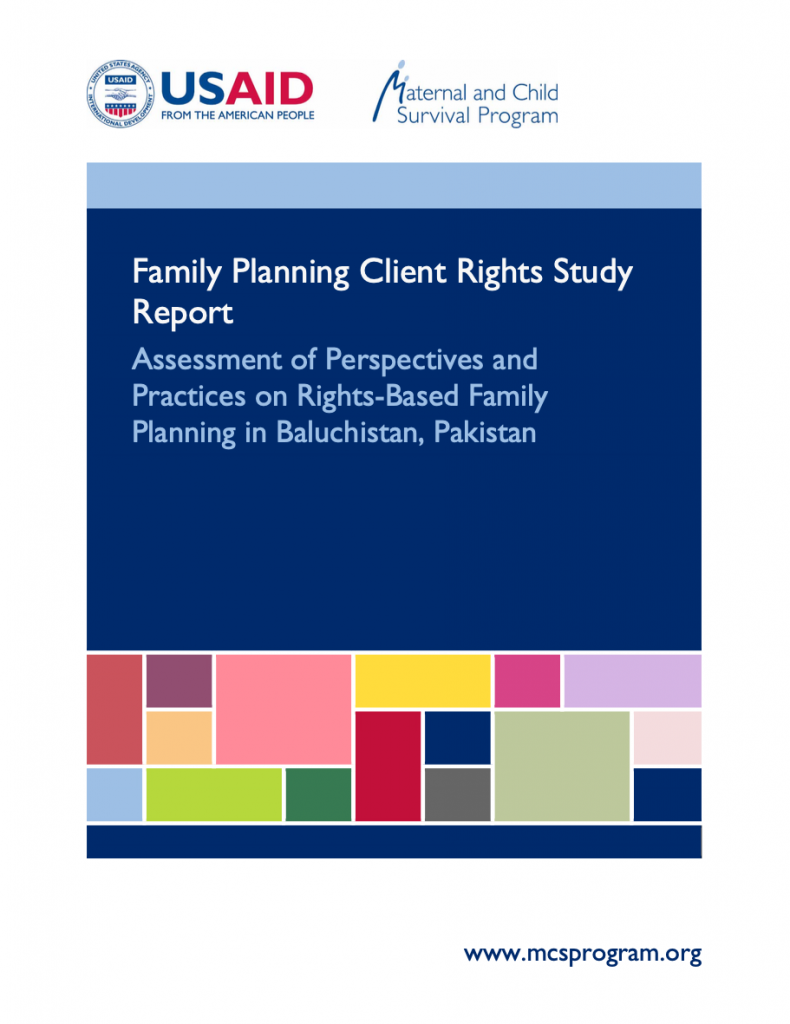
In Pakistan, the Maternal and Child Survival Program (MCSP), funded by the US Agency for International Development (USAID), worked in Sindh, Baluchistan, and Punjab provinces with a focus on improving women’s and children’s health by increasing the availability, accessibility, and utilization of family planning (FP) services. According to the 2017-18 Pakistan Demographic and Health Survey […]
Read More…
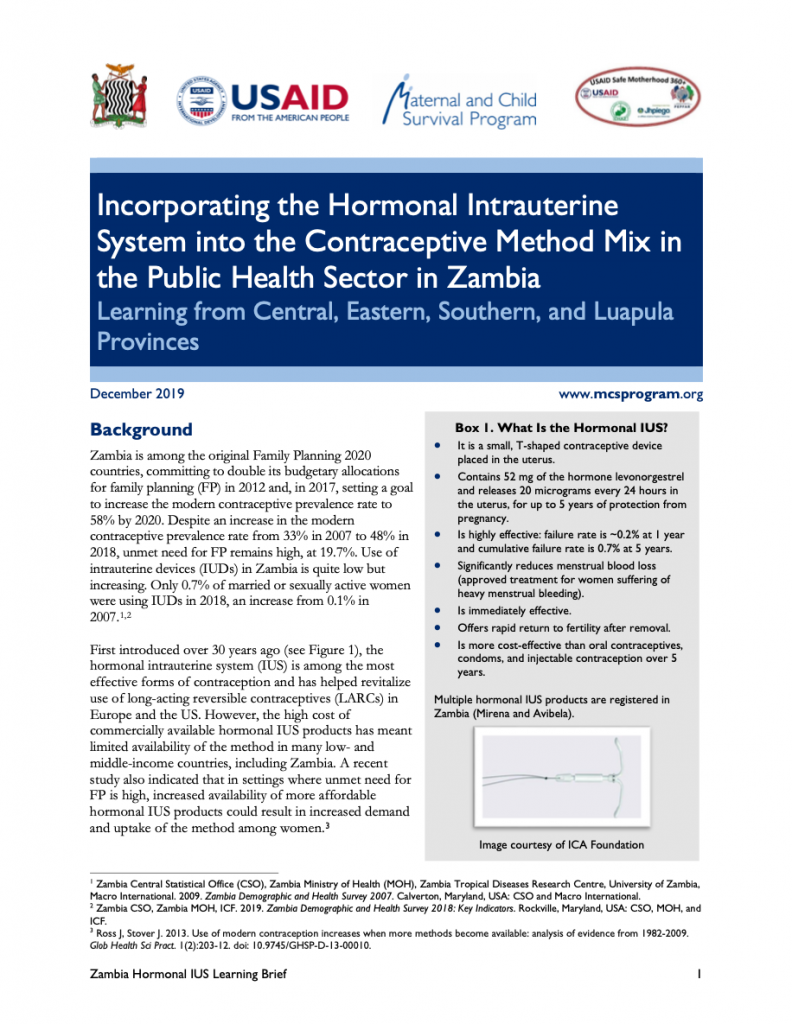
Zambia is among the original Family Planning 2020 countries, committing to double its budgetary allocations for family planning (FP) in 2012 and, in 2017, setting a goal to increase the modern contraceptive prevalence rate to 58% by 2020. Despite an increase in the modern contraceptive prevalence rate from 33% in 2007 to 48% in 2018, […]
Read More…
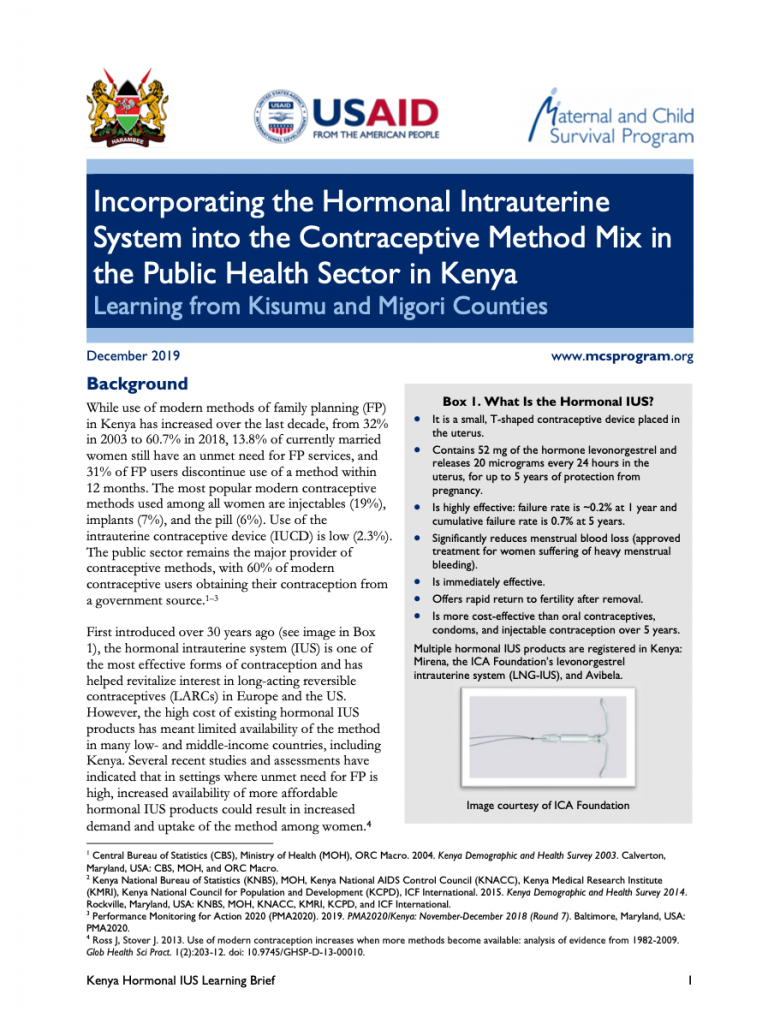
While use of modern methods of family planning (FP) in Kenya has increased over the last decade, from 32% in 2003 to 60.7% in 2018, 13.8% of currently married women still have an unmet need for FP services, and 31% of FP users discontinue use of a method within 12 months. The most popular modern […]
Read More…
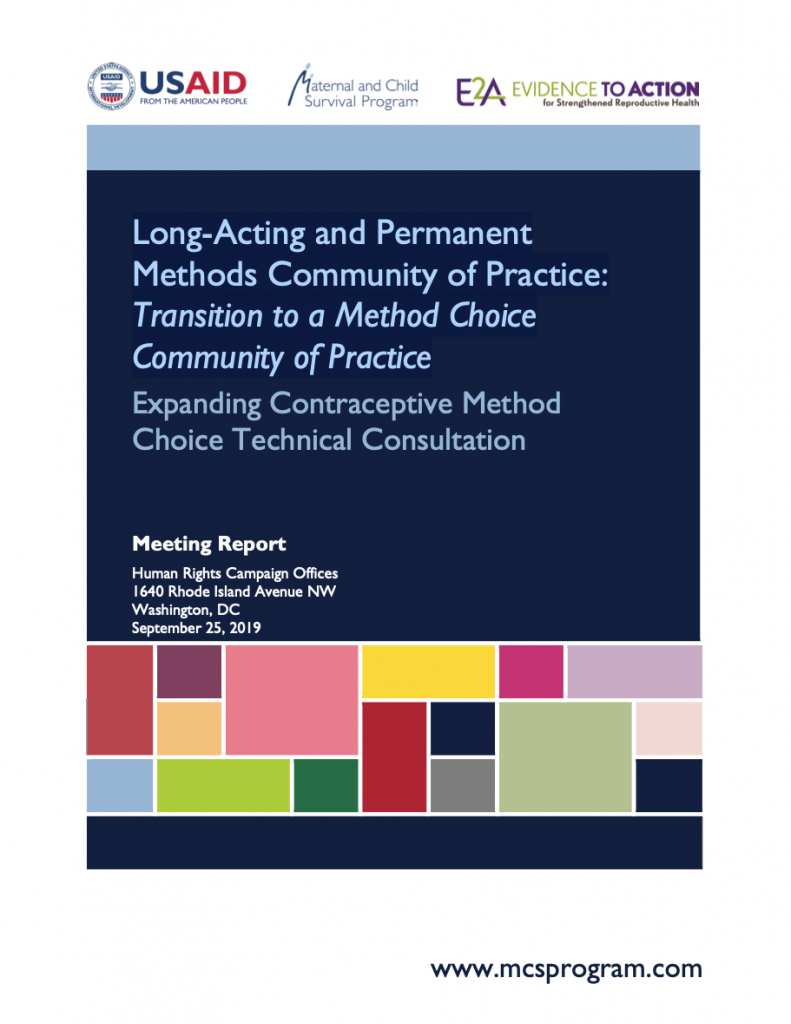
Approximately 214 million women of reproductive age in developing regions have unmet need for contraception—that is, they want to avoid pregnancy but are not using a modern contraceptive method.1 Expanding contraceptive options and access to voluntary family planning (FP) is critical to addressing this need. […]
Read More…
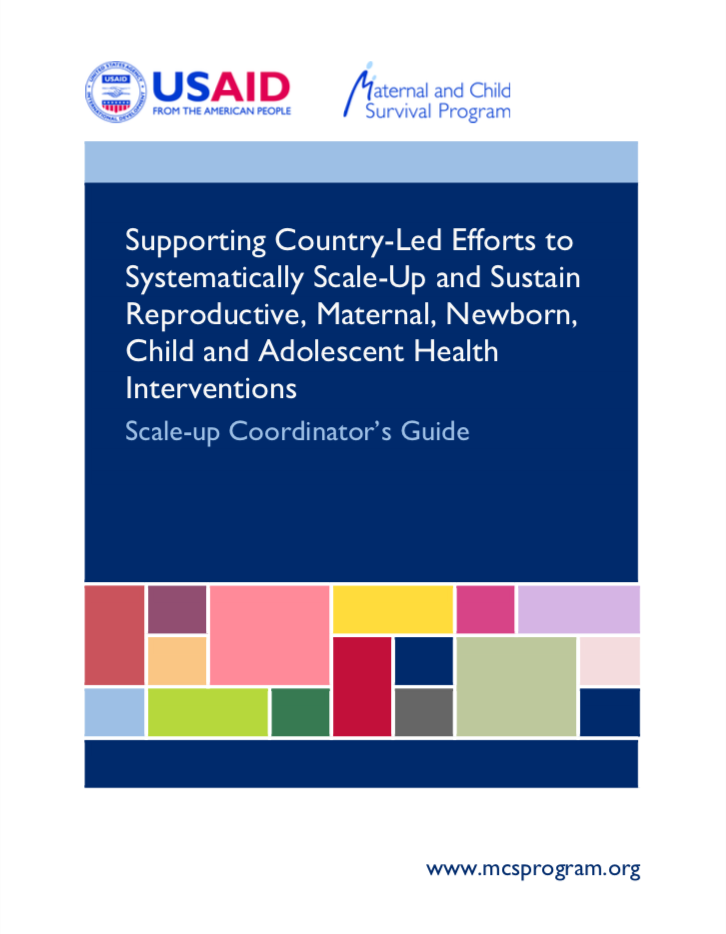
The Coordinators Guide and Toolkit are intended for those supporting a Ministry of Health-led systematic process of scale-up of one or more high-impact reproductive, maternal, newborn, child and adolescent health interventions, geared towards a scale-up coordinator or scale-up manager role. This guide is intended for use by those who support a country’s systematic process of […]
Read More…
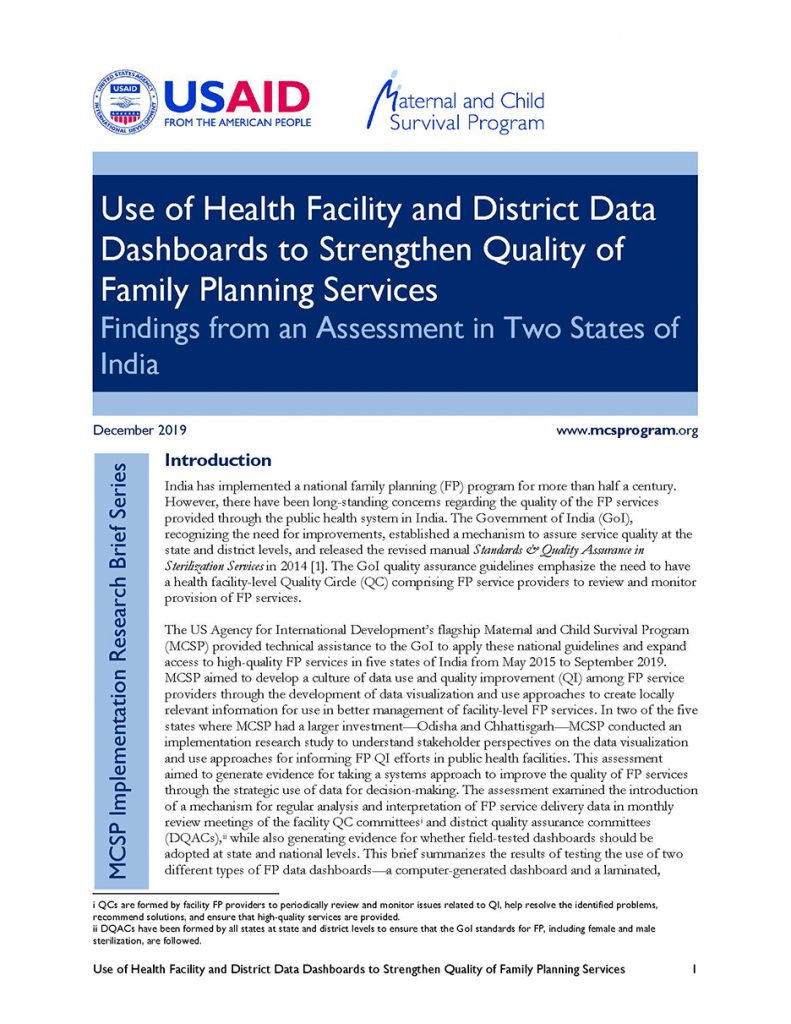
In five states of India, MCSP aimed to develop a culture of data use and quality improvement (QI) among family planning service providers through the development of data visualization and use approaches to create locally relevant information for use in better management of facility-level family planning services. In two of the five states where MCSP […]
Read More…
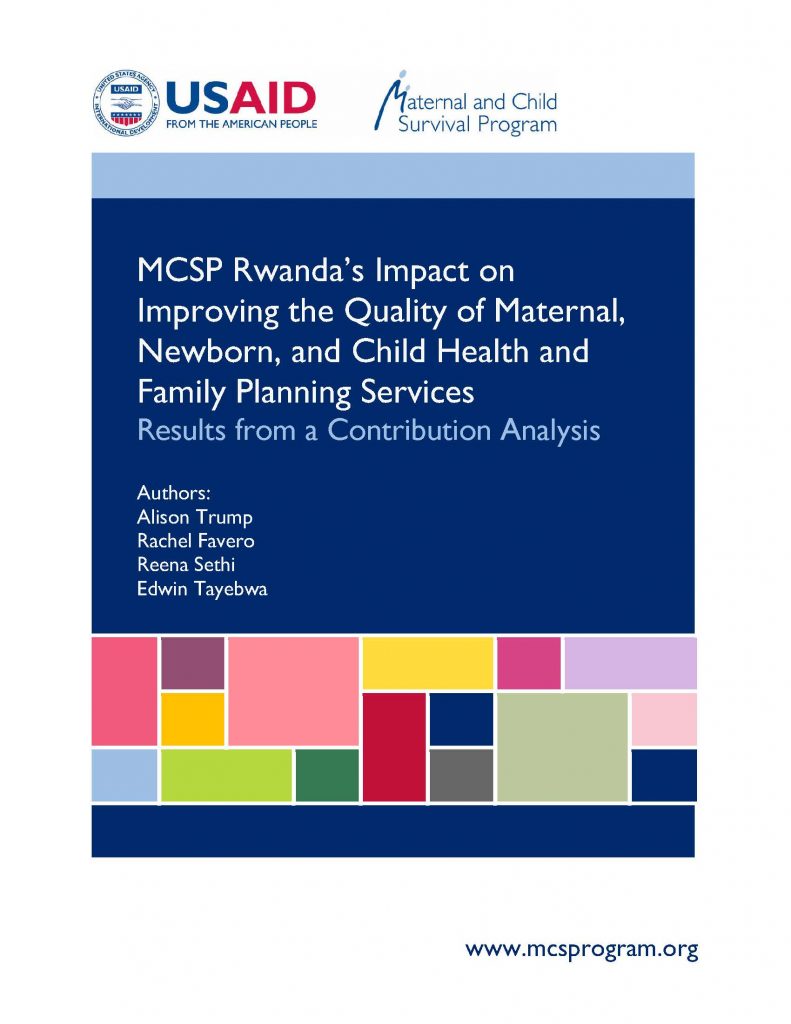
This analysis set out to answer the following questions and to assess evidence to support these questions: How did MCSP’s low-dose, high-frequency training and mentorship approaches improve and maintain health worker competencies in maternal, newborn and child health, and family planning? How did MCSP contribute to an increase in the uptake of postpartum family planning […]
Read More…










